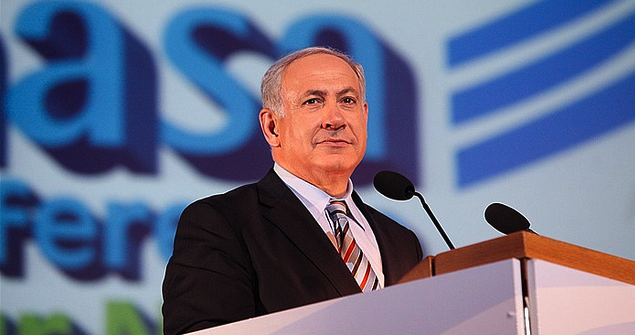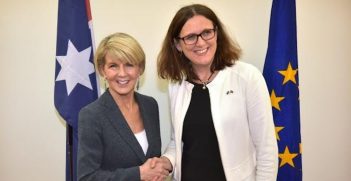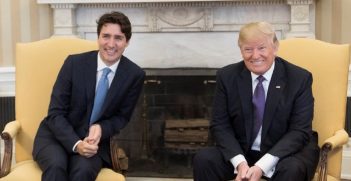Last-Ditch Appeal to the Right Helps Netanyahu Pull Off Surprise Election Win in Israel

After a nail-biting climax at which the two biggest parties contesting Israel’s general election appeared to be heading for a tie, the Likud party led by the prime minister, Benjamin Netanyahu, has won a dramatic victory that few had predicted.
A late surge in voting – which many commentators believe was encouraged by Netanyahu’s last-minute declaration that he would never accept a two-state solution to the Palestinian question – pushed Likud past its main rival, the centre-left Zionist Union, headed by Isaac Herzog.
Once this became clear, Herzog phoned the prime minister to congratulate him on his victory. It now appears likely that Likud will win 30 seats in the 120-member Knesset, while Zionist Union will win 24.
The prime minister will spend the next two to three weeks negotiating with other party leaders in a bid to form a government with a working majority.
Referendum on Bibi
In December 2014, the prime minister brought on the election by firing the finance minister Yair Lapid and justice minister Tzipi Livni. Now the result, less an election and more a “referendum on Netanyahu”, has delivered him victory, much to the surprise of many pundits.
Recent months have seen a rapid decline in relations between Netanyahu and the Obama administration, as Netanyahu has tried to curry favour with the American right. Meanwhile, the prime minister’s statement this week, there will be no chance of a Palestinian state bodes ill for the peace process.
Netanyahu’s shift from the tone of reconciliation expressed during his speech at Bar-Ilan University in 2009, in which he invited Arab leaders to discuss economic and political stability, will be unlikely to lead to a resumption of talks with the Palestinian Authority and could perpetuate the stagnation of the peace process.
Fading hopes
While the campaigns inspired optimism that a shift towards the centre-left would bring hope for the peace process, doubt remained as pre-election polls conducted by the Israel Democracy Institute (IDI) revealed a despondence among the Israelis polled: 60% believed that there would be no positive progress, regardless of leadership, while 65% supported peace negotiations, but did not believe that they would be conducive to peace in the near future.
The apathy felt by those polled is reflected by Palestinians who view the election in the wider picture of occupation: ongoing confiscation of land, violence from settlers, the destruction of olive groves, restrictions on freedom of movement and the withholding of $127m in tax revenues in response to the Palestinian government’s decision to join the International Criminal Court (ICC) in December 2014.
It is, however, still too early to guess how the next two years of Israeli military and defence policy will look.
Next moves
Earlier today Herzog confirmed that he will not join a Likud-led government and that the Zionist Union will stand in opposition, ending hopes for a coalition comprising both the centre-left and centre-right parties.
As the weekend approaches and the government continues to move to the right, the peace process will enter new territory – had ambiguity surrounded Netanyahu’s approach to negotiations, recent days have clarified that there is little inclination to resume or continue talks with the Palestinian Authority. The PA, in turn, has confirmed that it will “accelerate, continue and intensify diplomatic“ efforts through The Hague Tribunal.
The election has so far proved a diversion in an unfortunate year for Netanyahu. After the final votes have counted, certain government faces might change, but the problems will remain: in addition to the peace talks, reconciliation must begin at home and abroad, as relations with the United States and Europe remain on the brink and, at home, the demands for social justice continue.
Luisa Gandolfo is a Lecturer in Peace and Reconciliation at the University of Aberdeen. This article was originally published in The Conversation on 18 March 2015. It is republished with permission.





